First Nation construction workers can look forward to busy times, according to recently elected Thunder Bay-area MPs Patty Hajdu and Don Rusnak.
“I think you are going to have a very busy few years — we’ve made a historic commitment to invest in infrastructure, $125 billion over the next (10) years, $20 billon over the next two years,” says Hajdu, Thunder Bay-Superior North MP and minister of Status of Women. “I think you are all going to be extremely busy. And I think our biggest challenge is going to be how do we get that money out of the door fast enough. That has been a challenge in the past, so we are looking at how we can break down barriers to communities to access those funds in ways that we can spend it immediately.”
Hajdu says the federal government has three reasons for investing in infrastructure, including to build “the things communities need to thrive.”
“We know now that good social policy is actually good fiscal policy,” Hajdu says. “Our economy can’t actually return to a thriving state unless everybody has an opportunity to succeed, and unless we actually have people doing work in their communities.”
Hajdu says the federal government needs to recommit to providing “the foundation for our generations to come.”
“They need the infrastructure that our grandfathers and our great-grandmothers had the foresight to fight for,” Hajdu says. “I just want to tell you that you have an ally in me personally, but you also have an ally in your federal government. I’m extremely excited about the work we are going to accomplish together.”
Hajdu delivered her comments during the opening of the 14th Annual First Nations Northern Housing Conference, held Feb. 9-11 at the Valhalla Inn in Thunder Bay. Rusnak, Thunder Bay-Rainy River MP, spoke about how the new federal government will be approaching infrastructure needs.
“As Ontario’s only First Nations Member of Parliament, I am proud to say you will no longer see a top-down approach to First Nations infrastructure that occurred in the past government,” Rusnak says. “Our process will include conversations with Indigenous people and professionals in service of their communities. Events like these are important because they encourage the collaboration and innovation that will be vital as we begin this new consultation process.”
Rusnak says the federal government’s infrastructure plans include both on-reserve and off-reserve components.
“We know that housing in some communities is in crisis,” Rusnak says. “These events highlight best practices and make sure that the money is being spent in the right way in the communities.”
Lac Seul’s David Gordon looks forward to receiving funding for housing and infrastructure.
“We’re really hoping that they are going to be putting a lot of money into housing and infrastructure because it is badly needed,” says the Kenawind Housing Development Authority housing manager. “For years there have been cutbacks, so we’re hoping now we are going to do some catchup. But we have a long way to go with the infrastructure needs and housing in First Nations. I think it is going to take years, so hopefully they are planning over a long period, like 10 years, not just three or four years.”
Gordon says Lac Seul currently has a housing backlog of about 50 homes.
“We have about 100 families on our housing waiting list,” Gordon says. “We basically need new lots to be developed; we don’t have enough water pipes in the ground to service all the areas or to service the new housing lots we want to build.”
Gordon says Lac Seul has water distribution systems in each of its three communities, but the homes use septic fields to treat waste.
“Over the years the septic fields have created problems just due to leaking and being old,” Gordon says. “In our community capital plan, we’ve always wanted to have a sewage treatment system but of course we have never been able to achieve that because of funding.”
Gordon says one of the communities, Kejick Bay, has been under a boil water advisory for about 10 years.
“And Whitefish Bay recently got an upgrade to the water plant, but it was just the water plant,” Gordon says. “There was no extension of the distribution system, so the water is safe in Whitefish Bay but the infrastructure in the ground is still really bad. We’re hoping some day to have hydrants with water-flow capacity. We need a lot of infrastructure funding to actually get up to current standards.”
The conference also featured the Community Recognition Awards Banquet — which recognized the successes of the Garden River Housing Department, the Builders Challenge with Jon Eakes, a tradeshow and a variety of workshops. Workshops included Crawl Spaces; Housing Placement Considerations; The Building Science of Air; Advanced Framing; Is Your House Drowning; The True Cost of Housing; Radon Exposure Guideline; Measurement and Mitigation in Canada; Converting Housing Tenure; Chemical Awareness and Learning Modules; and Housing Water and Wastewater Connections.







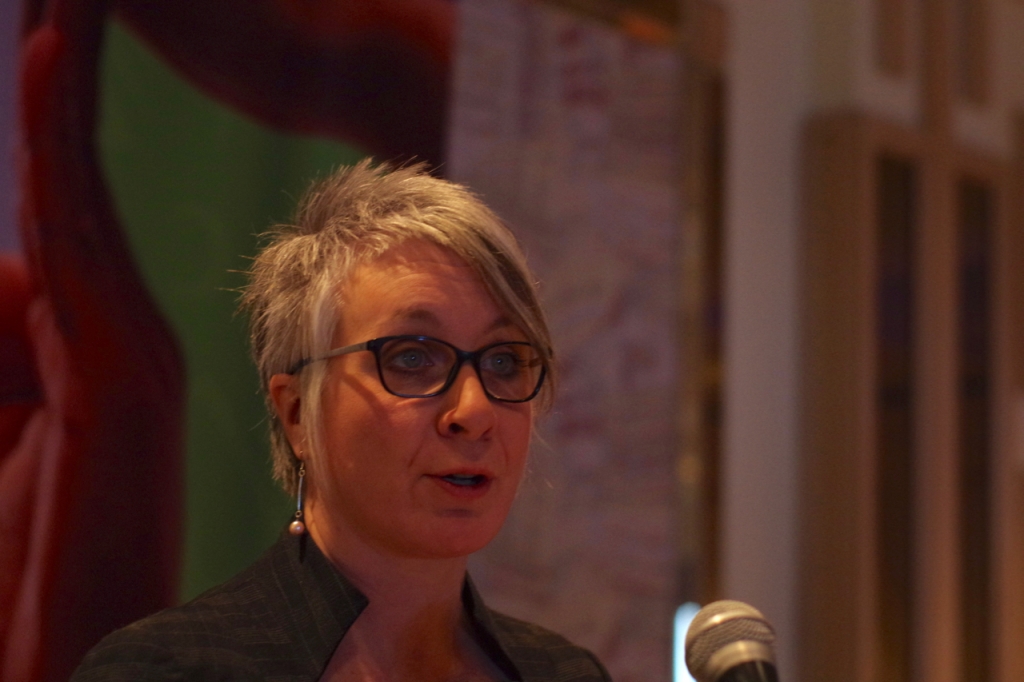
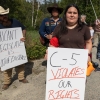
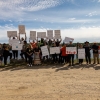
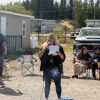
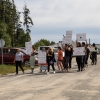







I am the product, evolution of many thousands of years as are you. I grew up on the land in the remote far north of Ontario following in the footsteps of my...
One of the most beautiful serene places I’ve ever visited was on the banks of the Opinagau River in northern Ontario, just near the corner of land where...